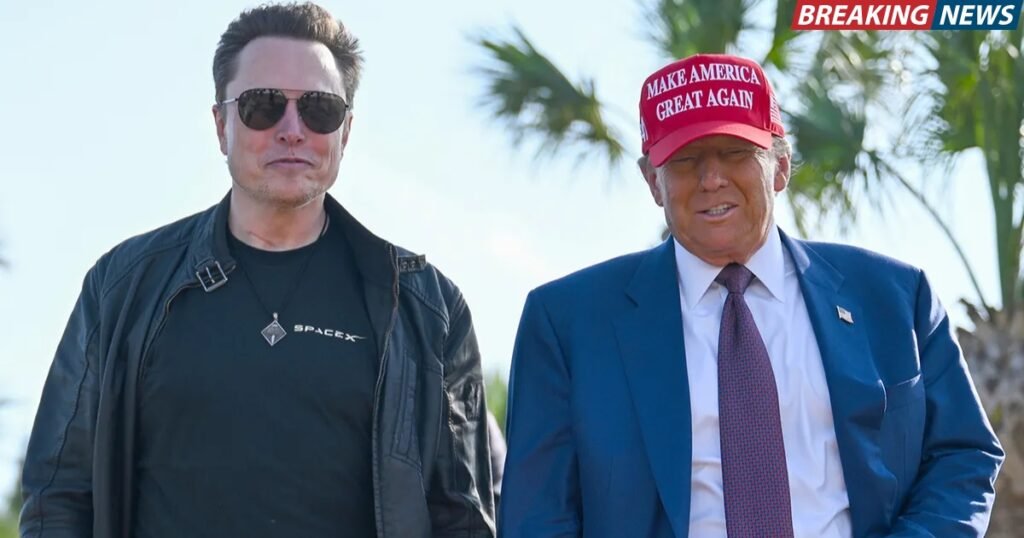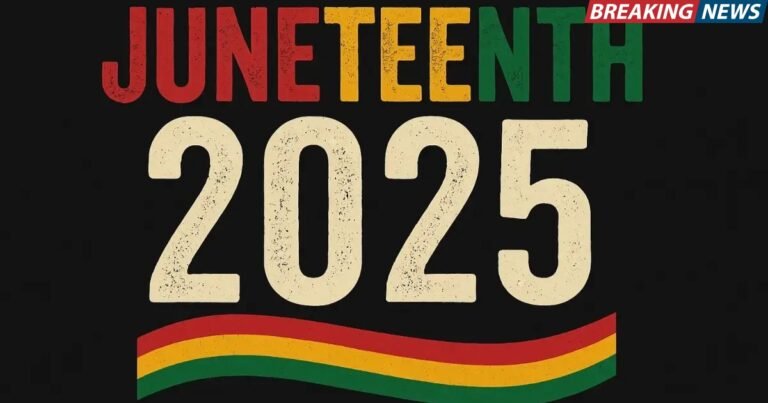
Elon Musk has voiced strong criticism of President Donald Trump’s newly proposed tax bill, labeling it a major setback for the Department of Government Efficiency (DOGE). Musk argues that the legislation undermines key fiscal reforms aimed at curbing federal overspending. As DOGE works to streamline government operations, Musk warns the bill could reverse essential progress.
Trump’s Tax Bill Undermines DOGE’s Cost-Saving Vision
Elon Musk has publicly criticized President Donald Trump’s recently passed tax bill and expressed concerns that it undermines efforts to reduce government spending and increase the national deficit. In an interview preview with CBS, Musk, who previously led the Department of Government Efficiency (DOGE), said he was “disappointed” with the bill. The bill is expected to raise the U.S. national debt by $3.3 trillion over the next decade.
Despite DOGE’s reported $160 billion in savings from shutting down 11 federal agencies and reducing the federal workforce by 250,000, overall government spending has risen, according to the Penn Wharton Budget Model. Musk, who co-led DOGE with Vivek Ramaswamy until January 2025, has been instrumental in claiming DOGE. Thus, it saved $160 billion and reduced government jobs by 20,000.
However, scrutiny has intensified over the credibility of these claims, mainly those surrounding Social Security fraud and a supposed $8 billion savings in a Homeland Security contract. DOGE’s recent announcements have quickly crumbled under fact-checking, revealing errors. Furthermore, Musk has since stepped back from his role in DOGE and announced plans to reduce political donations while refocusing on his companies, Tesla, SpaceX, and X.
Financial Times Investigation Reveals Flaws in DOGE’s Accounting
A recent Financial Times investigation has uncovered significant flaws in the DOGE’s accounting practices. It then leads to questions about the credibility of its reported savings.
- Inflated Savings Claims: DOGE reported $170 billion in savings, but the investigation revealed that much of this figure is unverified. For example, $12.8 billion in savings were attributed to contracts with the U.S. Agency for International Development (USAID), but the details were masked as “unavailable for legal reasons.”
- Overstated Contract Cancellations: Around $840 million in savings were claimed from 253 contracts labeled as “expired.” However, these contracts were already set to conclude before DOGE’s involvement. Thus, raising concerns about the legitimacy of these savings.
- Misleading Indefinite Delivery Vehicles (IDVs) Estimates: DOGE includes $4 billion in savings from 155 IDVs, which are flexible contracts without fixed costs. The savings were based on hypothetical maximum expenditures rather than actual costs, casting doubt on the accuracy of these claims.
- Lack of Transparency: The investigation found that only a portion of the claimed savings could be matched to specific contracts. In many cases, the necessary documentation was either incomplete or absent. Thus, undermining the transparency of DOGE’s reporting.
Musk Steps Back from DOGE to Focus on Core Ventures
Elon Musk has announced a strategic decision to step back from his leadership role in the Department of Government Efficiency (DOGE). DOGE is a federal initiative aimed at reducing government waste and inefficiency. Thus, this move comes as Musk shifts his focus toward his primary business ventures, Tesla, SpaceX, X, and xAI. The reasons behind the shift are:
- Intense Business Demands: Tesla and SpaceX, Musk’s flagship companies are facing significant challenges and opportunities that require his full attention. Tesla, in particular, reported a sharp 71% decline in profit during the first quarter of 2025. Therefore, attributed to increasing competition, supply chain disruptions, and fluctuating demand in key markets such as Europe and China.
- Brand and Public Relations Challenges: Musk’s involvement in political and government efficiency roles, including DOGE, mixed public reception. In Europe, Tesla has experienced protests and consumer pushback partly linked to Musk’s political activities and controversial public statements. Analysts suggest that Musk’s political visibility negatively impacted Tesla’s brand perception in some cases.
- Refocusing on Innovation and Growth: By stepping back from direct government involvement, Musk intends to dedicate more time to innovation and scaling operations within his companies. SpaceX’s upcoming missions, the expansion of Tesla’s electric vehicle lineup, and new ventures like xAI require Musk’s leadership as the business navigates a competitive and evolving landscape.
- Reduction in Political Engagement: Musk has indicated that his political engagement will be scaled back. Has has previously contributed substantial funds and leadership to political causes. However, there are some recent disappointments such as the passing of Trump’s “big beautiful” tax bill, which Musk criticized for undermining fiscal reform efforts, contributed to this decision.
Musk’s renewed focus on his core venture suggests a period of intense innovation and potentially transformative product launches. Tesla is expected to unveil new electric vehicle models and push further into energy storage solutions. SpaceX is preparing for a series of high-profile space missions, including commercial satellite launches and plans for lunar exploration.
Additionally, Musk’s xAI project aims to develop advanced artificial intelligence technologies. It is an area where he sees significant growth potential. His attention to these ventures indicates a strategic retreat from public policy arenas back to his roots in technology and business disruption.
Public Backlash Intensifies Against Musk’s Political Involvement
Elon Musk’s increasing visibility in political and government affairs, mainly his leadership role in the DOGE and vocal criticism of legislation like Trump’s Tax Bill, has sparked a growing public backlash. Thus, this controversy impacts both his reputation and the brands he leads. Key factors driving public criticism are:
- Polarizing Political Stance: Musk’s outspoken views on contentious political issues have alienated segments of the public and investors. His support for certain policies and criticism of others, including his denouncement of Trump’s “big, beautiful” tax bill as fiscally irresponsible. Thus, sharp reactions across the political spectrum.
- Impact on Tesla’s Brand Image: Tesla has faced protests and boycotts in key markets, mainly in Europe and part of the U.S., where consumers and advocacy groups criticize Musk’s political positions. The backlash has coincided with a noticeable dip in Tesla sales. Thus, promoting concerns among analysts about the company’s future growth prospects.
- Social Media Controversies: Musk’s use of X (Formerly Twitter) to express political opinions has led to heated debates and media scrutiny. His direct engagement with critics and supporters alike often amplifies public attention. It sometimes sparks vital controversies that overshadow his business achievements.
- Employee and Stakeholder Reactions: Internally, Tesla and SpaceX employees have expressed mixed feelings about Musk’s political activism. Some worry that the company’s focus on innovation could be undermined by the founder’s divisive public presence. Investors are similarly cautious, wary of the financial risks posed by public relations challenges.
Conclusion
Elon Musk’s criticism of Trump’s tax bill highlights the tension between fiscal reform and political realities. As Musk steps back from DOGE to refocus on his core ventures, public backlash over his political involvement grows, impacting his companies. Thus, the future will test his ability to balance innovation with political influence.



